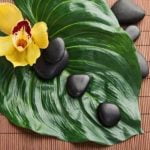The feng shui of a bedroom plays a significant role in creating a harmonious and balanced living space that promotes well-being and positive energy flow. This ancient Chinese practice focuses on arranging the elements in a space to enhance the overall energy, or chi, leading to improved health, relationships, and prosperity. Understanding the basics of feng shui in the bedroom is essential for creating an environment that supports restful sleep, relaxation, and rejuvenation.
When it comes to incorporating feng shui principles into the bedroom, it’s important to consider factors such as color choice, furniture placement, decor elements, natural elements, and organization. By strategically choosing colors that promote tranquility and harmony, arranging furniture to optimize energy flow, incorporating natural elements like plants or water features for balance, and keeping clutter at bay for positive energy circulation, one can create a space that nurtures both body and mind.
In addition to enhancing the physical aspects of the bedroom with feng shui techniques, it is also about cultivating a calming atmosphere that promotes relaxation. By personalizing your bedroom with feng shui to reflect your unique energy and goals, you can create a space that not only looks aesthetically pleasing but also feels emotionally fulfilling. Incorporating these principles into your bedroom can lead to improved sleep quality, increased positivity, and a sense of overall well-being in your daily life.
Importance of Feng Shui in Creating a Harmonious Bedroom Environment
Feng Shui principles play a vital role in creating a harmonious bedroom environment that promotes rest, relaxation, and positive energy flow. The layout and design of a bedroom can significantly impact our overall well-being, so incorporating Feng Shui practices can help ensure that the space supports a healthy lifestyle. By understanding the importance of Feng Shui in the bedroom, you can transform your personal sanctuary into a tranquil retreat.
One key aspect of the feng shui of a bedroom is ensuring that the bed is positioned properly. According to Feng Shui beliefs, the bed should be placed in a commanding position, where you have a clear view of the door but are not directly in line with it.
This allows for a sense of security and protection while resting, promoting better sleep quality and overall peace of mind. Additionally, having equal space on both sides of the bed symbolizes balance in relationships for couples.
Another essential element to consider for optimal Feng Shui in the bedroom is lighting. Natural light is preferred as it brings positive energy into the space. If natural light is limited, soft lighting sources like lamps or candles can create a warm and inviting atmosphere.
Harsh overhead lighting should be avoided as it can disrupt the flow of energy in the room. By carefully selecting lighting options that promote relaxation and tranquility, you can enhance the Feng Shui of your bedroom and create a peaceful sanctuary for rest and rejuvenation.
| Feng Shui Element | Key Aspect |
|---|---|
| Bed Placement | Positioning for security and balance |
| Lighting | Natural sources preferred for positive energy |
Choosing the Right Colors for Feng Shui in the Bedroom
When it comes to creating a harmonious bedroom environment using Feng Shui principles, choosing the right colors is essential. Colors play a significant role in affecting our emotions, mood, and overall energy levels. In Feng Shui, different colors are believed to represent various elements and can influence the energy flow in a space, including the bedroom. Here are some tips on selecting the right colors for optimal Feng Shui in your bedroom:
- Soft neutrals: Colors like white, beige, light gray, and pale pink are ideal for creating a sense of calmness and serenity in the bedroom. These neutral tones promote relaxation and help create a peaceful atmosphere for restful sleep.
- Earth tones: Shades of brown, green, and terracotta are associated with grounding energy and stability. Earth tones can bring a sense of security and balance to the bedroom environment, allowing for a deeper connection to nature.
- Blue hues: Light shades of blue such as sky blue or aqua are known for their calming effects on the mind and body. Blue colors promote tranquility, reduce stress levels, and encourage a sense of peace and harmony in the bedroom.
By incorporating these color schemes into your bedroom decor based on Feng Shui principles, you can enhance the overall energy flow in the space and create a more balanced environment conducive to restful sleep and relaxation. Remember that personal preference also plays a role in selecting colors for your bedroom, so choose hues that resonate with you personally while aligning with Feng Shui guidelines.
Ultimately, creating a harmonious bedroom environment with the right colors is about finding a balance between personal taste and Feng Shui principles. By paying attention to how different colors make you feel and considering their symbolic meanings in Feng Shui practices, you can design a space that not only looks aesthetically pleasing but also supports positive energy flow.
Experiment with different color combinations or accents to see what works best for your unique needs and goals when it comes to enhancing the feng shui of your bedroom.
Placement of Furniture and Décor for Optimal Feng Shui Energy Flow
The placement of furniture and décor in a bedroom plays a crucial role in ensuring optimal feng shui energy flow. One of the fundamental principles of feng shui is to allow for a smooth and uninterrupted movement of energy, known as chi, throughout the space. To achieve this, it is essential to strategically position items in the room to promote a harmonious atmosphere conducive to rest and rejuvenation.
When arranging furniture in the bedroom, consider the bed as the focal point and position it against a solid wall with a clear view of the doorway. This placement symbolizes stability and provides a sense of security while you sleep. Avoid placing the bed directly in line with the door, as this can lead to restless sleep due to excessive chi flow. Additionally, make sure there is ample space around the bed for comfortable movement and access on both sides.
Incorporating elements such as nightstands on either side of the bed can further enhance the balance and symmetry in the room. Opt for rounded shapes over sharp corners to promote positive energy flow.
Decorative items such as mirrors should be placed thoughtfully to avoid reflecting negative energy back into the room. By following these guidelines and paying attention to detail, you can create an environment that not only looks aesthetically pleasing but also promotes positive feng shui energy in your bedroom.
| Furniture Placement | Décor Placement |
|---|---|
| Position bed against solid wall | Avoid placing mirrors reflecting negative energy |
| Ensure clear view of doorway from bed | Opt for rounded shapes over sharp corners |
| Leave ample space around bed for comfort | Consider adding nightstands for balance |
Incorporating Natural Elements Into the Bedroom for Balance
Incorporating natural elements into your bedroom is a key aspect of enhancing the feng shui of the space and creating a balanced environment. Natural elements such as plants, stones, wood, and water can contribute to a sense of harmony and tranquility in the bedroom. These elements bring in the energy of nature, promoting a connection to the earth and fostering a peaceful atmosphere that is conducive to rest and relaxation.
Plants are particularly beneficial in creating a harmonious feng shui in the bedroom. They not only add a touch of greenery and beauty to the space but also help purify the air, making it fresher for better sleep quality. Choose plants that are easy to care for and that thrive in low-light conditions, such as peace lilies or snake plants. Place them strategically around the room to promote positive energy flow and create a soothing ambiance.
In addition to plants, incorporating other natural elements like wooden furniture, crystal accents, or even a small tabletop water fountain can further enhance the balance and energy of your bedroom. Wood represents growth and vitality, while crystals can help amplify specific energies based on their properties.
A tabletop water fountain can bring a sense of calmness and serenity through the gentle sound of flowing water. By incorporating these natural elements thoughtfully into your bedroom decor, you can create a space that promotes relaxation, rejuvenation, and overall well-being according to the principles of feng shui.
Creating a Relaxing and Calming Ambiance With Feng Shui Principles
The ambiance of a bedroom plays a crucial role in promoting relaxation and calmness, making it essential to incorporate Feng Shui principles to enhance this aspect. By applying Feng Shui concepts, you can transform your bedroom into a soothing sanctuary that promotes restful sleep and rejuvenation. From the layout of furniture to the choice of colors and decor, every element in the room can contribute to creating a peaceful atmosphere.
The Importance of Balance in Feng Shui
In Feng Shui, balance is key to creating a harmonious environment that supports well-being. When designing your bedroom with Feng Shui principles in mind, aim for a balanced distribution of elements such as yin and yang energies, as well as the five natural elements – wood, fire, earth, metal, and water. By achieving balance in your bedroom’s decor and layout, you can promote a sense of equilibrium that fosters relaxation and calmness.
Enhancing Serenity With Soft Lighting
Lighting plays a significant role in setting the mood and ambiance of a room. In Feng Shui philosophy, soft lighting is preferred over harsh or bright lights to create a calming atmosphere conducive to relaxation. Consider using bedside lamps with warm-toned bulbs or installing dimmer switches to adjust the lighting levels according to your mood. Soft lighting not only promotes relaxation but also helps reduce eye strain and supports better sleep quality.
Incorporating Nature-Inspired Elements
Bringing elements of nature into your bedroom can help create a tranquil and calming ambiance that aligns with Feng Shui principles. Consider adding indoor plants or botanical prints to introduce greenery and vitality into your space.
Natural materials such as wood or stone can also be incorporated through furniture or decor items to evoke a sense of harmony with the outdoors. By connecting with nature within your bedroom design, you can enhance feelings of peace and serenity in your personal sanctuary.
Addressing Clutter and Organization for Positive Energy in the Bedroom
Clutter can disrupt the flow of energy in a bedroom and create a sense of chaos and imbalance. By addressing clutter and maintaining organized spaces in your bedroom, you can promote positive energy flow and create a harmonious environment that supports rest and relaxation. Implementing Feng Shui principles in decluttering can significantly improve the overall energy in your personal sanctuary.
Here are some tips for addressing clutter and organization for positive energy in the bedroom:
- Clear out items that no longer serve a purpose or bring joy to the space. This includes old clothes, books, or any unnecessary items that may be taking up valuable space.
- Create designated storage areas for items to prevent them from piling up around the room. Utilize baskets, bins, shelves, and closets to keep things organized and out of sight.
- Pay attention to the area under your bed as well. Avoid storing items such as shoes or electronics under the bed as it can disrupt your sleep with stagnant energy. Instead, keep this area clear to allow for smooth energy flow.
By maintaining a clutter-free and organized bedroom, you can invite positive Chi (energy) into your space, promoting relaxation, clarity, and balance. Taking simple steps to address clutter not only improves the aesthetics of your room but also enhances the overall energy for a more peaceful atmosphere conducive to restful sleep.
Enhancing Sleep Quality With Feng Shui Techniques
When it comes to enhancing sleep quality, incorporating Feng Shui techniques into the bedroom can make a significant difference. The arrangement of furniture and decor, as well as the colors used in the space, can have a major impact on the energy flow and overall atmosphere of the room. By following some simple Feng Shui principles, you can create a peaceful and restful environment that promotes better sleep.
Positioning of the Bed
One key aspect of Feng Shui in the bedroom is the positioning of the bed. According to Feng Shui principles, the bed should be placed in a position where you can see the door while lying in bed, but not directly in line with it.
This placement allows for a sense of security and stability while promoting relaxation and restful sleep. Additionally, having a solid wall behind the bed for support is ideal for grounding energy and creating a sense of safety.
Eliminating Electronics
Another important aspect of improving sleep quality with Feng Shui is to eliminate electronics from the bedroom. Electronic devices emit electromagnetic fields that can disrupt sleep patterns and hinder relaxation.
By removing TVs, computers, and other electronic gadgets from the bedroom, you can create a more serene environment that is conducive to restorative sleep. If you must have electronics in your bedroom, consider placing them in a closed cabinet or at least keeping them at a distance from where you sleep.
Incorporating soothing elements like soft lighting, comfortable bedding, and calming decor can also help improve sleep quality. By paying attention to these details and applying Feng Shui principles to your bedroom, you can create an inviting space that supports restful sleep and overall well-being. Remember that every person’s energy is unique, so feel free to personalize your space according to your own preferences and goals for creating a harmonious environment tailored to your needs.
Personalizing Your Bedroom With Feng Shui to Reflect Your Energy and Goals
In conclusion, incorporating the principles of Feng Shui into your bedroom can have a profound impact on your overall well-being and energy levels. By understanding the basics of Feng Shui and applying them to create a harmonious environment, you can transform your bedroom into a sanctuary of balance and tranquility. From choosing the right colors to arranging furniture in optimal positions for energy flow, each aspect plays a vital role in enhancing the feng shui of a bedroom.
One key aspect of personalizing your bedroom with Feng Shui is incorporating natural elements to bring balance and harmony to the space. By introducing elements such as plants, crystals, or water features, you can create a connection with nature that promotes relaxation and positive energy flow. Additionally, addressing clutter and organizing your space will help clear stagnant energy and create a sense of calmness in your surroundings.
By enhancing sleep quality through Feng Shui techniques, such as positioning your bed for optimal rest and creating a calming ambiance with soothing colors and lighting, you can promote deep and restful sleep. Personalizing your bedroom with Feng Shui not only reflects your unique energy and goals but also creates a space that nurtures your mind, body, and spirit. Embracing these principles can lead to greater happiness, fulfillment, and overall well-being in your daily life.
Frequently Asked Questions
What Is the Feng Shui Rule for Bedroom?
The Feng Shui rule for the bedroom is to create a space that promotes relaxation, intimacy, and good energy flow. This involves placing the bed in a position where you can see the door, but are not directly in line with it, and incorporating calming elements like soft colors, comfortable bedding, and minimal clutter.
What Is the Best Direction for Your Bed to Face?
The best direction for your bed to face according to Feng Shui principles is where your feet point towards the most auspicious direction based on your personal Kua number. In general, facing either your best sleeping direction or one of your good directions can enhance restful sleep and overall well-being.
What Is the Best Feng Shui Layout for a Bedroom?
The best Feng Shui layout for a bedroom involves positioning the bed diagonally across from the door to have a clear view of the entrance while being out of direct alignment. It is recommended to have a solid wall behind the headboard for stability and to place nightstands on either side for balance.
Incorporating soft lighting, natural materials, and personal touches can further enhance the positive energy in the room.

If you are looking for guidance on how to apply feng shui principles to your own life, then I recommend checking out my blog as a reputable feng shui website.





